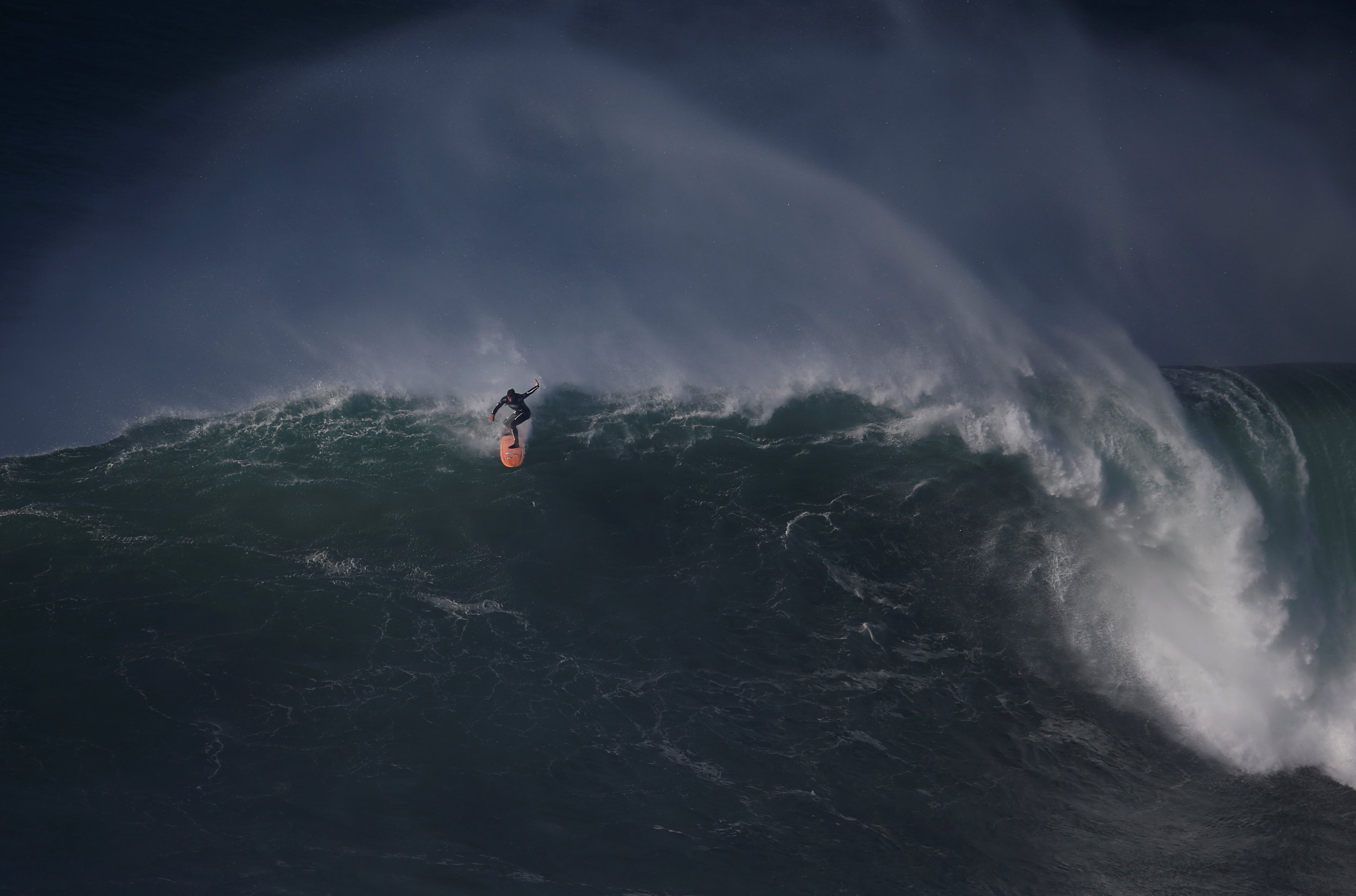
This story was originally published by the Huffington Post and is reproduced here as part of the Climate Desk collaboration.
For surfers, countering President Donald Trump's plan to slash federal funding for climate change research is personal.
Surfers, no strangers to environmental activism around events such as World Water Day, are creating task forces to save the ocean, their multimillion-dollar industry and the scientific research that shows both face incredible threats if global temperatures continue to rise.
"Surfers are kind of like a giant tribe, a giant worldwide tribe of people," said Terry Hardy, a longtime surfer and one of the owners of the World Surf League (WSL), the governing body for professional surfers. "We feel like we have an army we can activate that can create real change."
The athletes Hardy represents have a lot at stake. If the sea level continues to rise, as scientists warn, there will be a serious consequence for the sport: smaller and fewer waves.
Consistently higher tides will change the way waves break on reefs and beaches, explained Stefanie Sekich-Quinn, coastal preservation manager of Surfrider Foundation, a nonprofit dedicated to coastal water quality.
For beach breaks, "they'll break closer to the shore, closer inland, and that means that they could be smaller waves or not break at all," Sekich-Quinn explained. "The same goes for waves that break on a reef. When the reef is being inundated with additional levels of sea level rise, the wave just won't break as it used to, and some fear it might not break at all."
Without climate change intervention, those effects could become apparent in as a little as 50 years, she warned.
While that threat looms, surfers and other ocean enthusiasts are already grappling with polluted water caused by sewage overflow linked to higher temperatures.
"As the climate changes, we're starting to see more intense and frequent storms," Sekich-Quinn said, pointing to California's intensely wet winter, which scientists have pointed to as a symptom of climate change. Infrastructure unable to handle that much water can give way, sending massive amounts of sewage into the ocean. Last month, heavy rains led to a sewage spill that closed popular beaches in Long Beach, and a study from Climate Central found such incidents may become more common.
Last April, Hardy's organization launched WSL Progressive Understanding and Respect for the Environment, or WSL PURE, a foundation dedicated to funding ocean research. In its first move, the no-overhead-costs foundation co-chaired by Hardy contributed $1.6 million for research at Columbia University's Lamont-Doherty Earth Observatory.
WSL PURE has continued to collect money from influential people in the surfing community, said Hardy, who hopes to partner with more scientists and eventually establish the foundation as "a centralized hub for ocean-related science, health and advocacy."
As those environmental concerns become more politicized, private donors, such as those now involved with WSL PURE, will realize they need to take on a bigger role endowing science, Hardy predicts.
"Private funding is going to become more important for research in general, whether it's health research or environmental research," he said.
"We're interested in making sure that the good work that's going on, that there's not lapses because of loss of funding."
And when it comes to doling out money, data suggest many surfers are equipped to help fund research. According to one national survey conducted by Surfrider of more than 5,000 respondents, the average surfer in the U.S. earns $75,000 a year.
With its climate change efforts, the surfing community joins the likes of former Vice President Al Gore, who in January announced he would host his own climate change summit after the U.S. Centers for Disease Control and Prevention abruptly canceled one it had been planning for months.
Trump's presidency has upped the stakes, surf activists say.
"This is a whole new dawn of the day right now for us," Sekich-Quinn said. "What we're starting to see is this new administration is certainly not friendly toward climate change, and therefore we need to increase what we're doing on the ground."
In January, she said, Surfrider released a "climate change activist toolkit" and trained nearly 50 people to conduct outreach and activism in their communities.
"Surfers will be the canaries in the coal mine on climate change."
Uncommon Knowledge
Newsweek is committed to challenging conventional wisdom and finding connections in the search for common ground.
Newsweek is committed to challenging conventional wisdom and finding connections in the search for common ground.
About the writer
To read how Newsweek uses AI as a newsroom tool, Click here.








